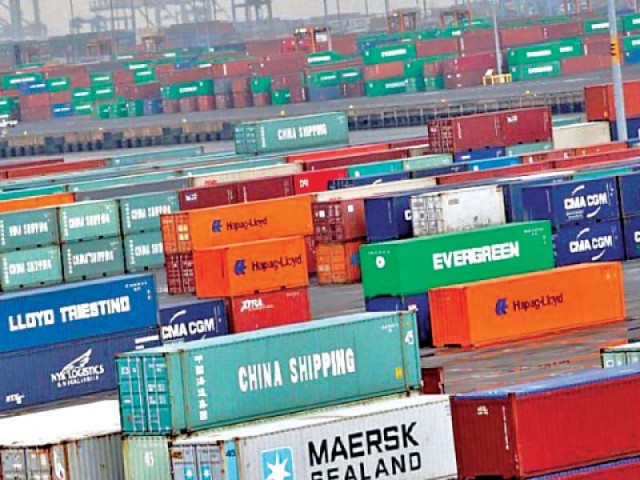Cabinet likely to approve national tariff policy
Draft recommends curb in duties for export-oriented industries, revision of tariff slabs

The essential raw materials, intermediate goods and machinery for the export-oriented industries may be downsized to zero to increase competitiveness. PHOTO: REUTERS
The draft of the policy recommends a gradual reduction in the duty on raw material and machinery imports for export-oriented industries and revision of tariff slabs to be set at 5%, 10%, 15% and 20% within a span of two years. It further suggests implementing policy recommendations over a five-year period starting from budget 2018-19.
The essential raw materials, intermediate goods and machinery for the export-oriented industries may be downsized to zero within the next two years to increase competitiveness of the industry by providing them access to all three through imports.
WTO members warn Pakistan against granting subsidy on wheat exports
While addressing a press conference, Adviser on Commerce, Textile, Industry and Production and Investment Abdul Razak Dawood stressed that the cabinet would approve the National Tariff Policy to draw investment in the country.
He added that it would be in effect for three to four years to encourage the business community to invest in the country. “This will ultimately result in reviving confidence of the business community,” he emphasised.
Expressing concerns over the widening gap between country’s exports and imports, he said that Pakistan was directing attention towards markets of China, Japan and Korea to uplift exports. Dawood appreciated Indonesian parliament’s approval of tariff concession on 20 items and lauded that it would result in raising exports by $150 million.
Pakistan needs to go for high value-added export basket
Replying to a question about the review of GSP plus status, he recalled that inspection commission of EU visited Pakistan and presented ten points for implementation. “It wanted us to enact bondage labour law and human rights,” he said. “The Pakistani government also wants to follow these laws.”
Answering another question, he stated that the country possesses 1.8 million tons of sugar stocks and had provided the industry approval to export one million tons. “The government has linked the export with implementation of harsh conditions,” the adviser said, adding that it held meetings with sugar industry and the conditions would be modified to begin the export of sugar.
Published in The Express Tribune, November 29th, 2018.
Like Business on Facebook, follow @TribuneBiz on Twitter to stay informed and join in the conversation.





1733130350-0/Untitled-design-(76)1733130350-0-208x130.webp)











COMMENTS
Comments are moderated and generally will be posted if they are on-topic and not abusive.
For more information, please see our Comments FAQ